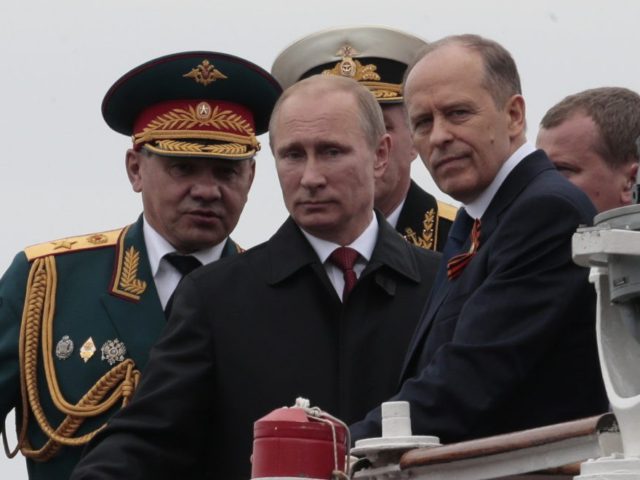Russian “support” is “requested now more than ever” in Nicaragua, Venezuela, and Cuba, Russian Defense Minister Sergey Shoigu said Wednesday.
“We have historically established partnership relations with Cuba, Nicaragua, Venezuela, and other countries. They have been resisting various forms of pressure up to the threat of the open use of military force for many years. […] Russia’s support is requested now more than ever,” Shoigu told reporters on June 23 as quoted by the Russian state-run TASS news agency.
“All problems that have been mentioned regarding other regions are relevant here as well,” Shoigu noted, according to TASS.
“Those are both the threat of terrorism closely connected with illegal drugs production and permanent attempts to initiate another string of colored revolutions,” Shoigu, who also serves as the Russian General of the Army, added.
Shoigu did not specify if the Latin American countries he mentioned had “made a formal request for help” from Russia, according to the Buenos Aires-based news site Infobae, which reported that his June 23 speech was “given during a conference on international security held in Moscow.”
The Russian defense minister’s remarks on Wednesday “come at a particularly sensitive time in Nicaragua,” according to Infobae, which noted that the country is currently “isolated internationally as a result of the actions of the government of [Nicaraguan President] Daniel Ortega.”
The Argentine news site referred to Ortega’s government arresting “at least 15 political opponents in recent weeks, including five presidential hopefuls, ahead of the [November 7] presidential vote in which the long-ruling leader will run for a fourth consecutive term,” Reuters reported on June 24.
Ortega gave a nationally televised speech on June 24 in which he claimed that his administration “was arresting and prosecuting criminals who were plotting a coup against him,” according to Reuters. Ortega alluded to the alleged “color revolutions” referred to by Shoigu in his remarks on June 23.
“The enemies of the revolution, the enemies of the people, are shouting how is it possible they’re detained? How is it possible they’re imprisoned? How is it possible they’re being prosecuted?” Ortega said in his speech, which was broadcast live in Nicaragua.
“It’s absurd to set them free. Everything we’re doing, we’re doing it by the book,” the president said.
Nicaragua’s “alliance with Moscow is not new,” Infobae noted Wednesday, recalling that “in 2014, [Russian] President Vladimir Putin made a surprise visit to the Central American country, and before that Ortega had expressed his support for Russia in various regional conflicts, including that of Ukraine, and in the face of Western sanctions.”
Ortega is the leader of the Sandinista National Liberation Front, a communist political party in Nicaragua.
“The Sandinistas first swept to power [in Nicaragua] in 1979 after toppling dictator Anastasio Somoza,” Reuters recalled on Thursday. “They were then plunged into a draining civil war with U.S.-backed right-wing Contra rebels.”
“The Contra war, along with Washington’s economic embargo against Nicaragua and the Sandinistas’ mismanagement, laid waste to the economy, despite support from Cuba and the Soviet Union,” according to the news agency.
Russia’s connection to Venezuela likewise traces back to the former Soviet Union era, though Moscow’s modern links to Caracas were established under the socialist dictatorship of Hugo Chávez, who ruled over the office of the Venezuelan presidency from 2002 to 2013. Russia worked with Chávez to provide Venezuela with billions of dollars in military equipment. Russian Foreign Minister Sergei Lavrov and his Venezuelan counterpart, Jorge Arreaza, met in Moscow on June 22 to reaffirm Russia’s commitment to continue providing military aid to Venezuela.

COMMENTS
Please let us know if you're having issues with commenting.